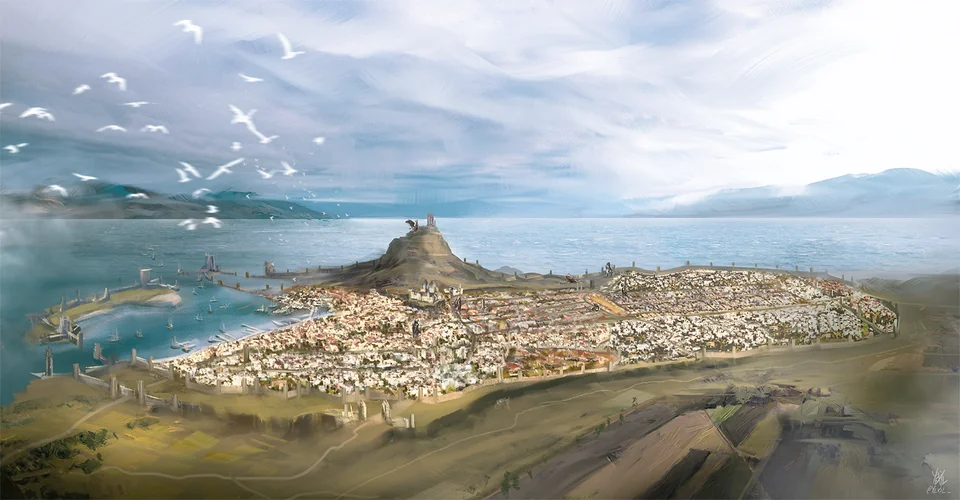Shaaran (shah-RAN)
Dark-haired and tan-skinned nomads from southern Faerûn, the Shaarans are skilled hunters, archers, and riders who revere various nature deities. They are organized into clans under the direction of elders and chieftains.
Naming Traditions
Feminine names
Anet, Bes, Idim, Lenet, Moqem, Neghet, Sihvet
Masculine names
Awar, Cohis, Damota, Gewar, Hapah, Laskaw, Senesaw, Tokhis
Family names
Cor Marak, Laumee Harr, Moq Qo Harr, Woraw Tarak
Culture
Major language groups and dialects
Shaarans speak their own language, which have no known connection to any other language in Faerûn. They continue their culture through an oral history from one generation to the next. Few Shaarans can read or write, but those who do use the Dethek alphabet learned from the Dwarves of the Great Rift.
Culture and cultural heritage
Shaaran society is built around extended family units known as clans. Several clans form a tribe which is governed by a chieftain and a council of wise elders. The chieftain guides the movement of the clan across the plains. This nomadic lifestyle is largely dependent on their highly-prized horses, which ironically, tend not to thrive outside their homeland.
Because these planes act as a crossroad in southern Faerûn, the Shaarans learned to get along reasonably well with other cultures. Despite this, they have a particular distaste of gnolls and the Yuan-ti around Lake Lhespen or the Lake of Salt. Due to this, different tribes can easily fall into conflict. They may have no remorse about stealing, looting or pillaging from one another. Raids involving large parties would often lead to war between tribes that could only be ceased by peace talks or annihilation.
Tribes not engaged in warfare will send delegates in the spring and fall to the Council Hills. These sacred burial grounds play host to gatherings at which such topics as peace talks, alliances, territorial disputes, and outside threats were discussed. The cliffs and caves of the Landrise are also considered holy ground to inter the dead for some tribes.
Most Shaarans will live their lives as fighters, rangers or barbarians. Magic is not commonly practised among the Shaaran tribes, though each will have a handful of arcane and divine spellcasters, the latter usually being about twice as common. Divination magic is considered especially useful and is usually available to the tribe chieftain, either personally or via a trusted elder. Druids are especially valued in aiding with the survival of the tribe and in matters of the herds and most tribes usually have at least one in their ranks.


